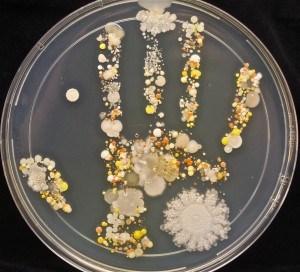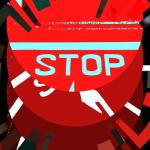So a few weeks ago there was this article in the New York Times on how shame can be at the root of depression:
Several years ago a patient named Brian was referred to me. He had suffered for years from an intractable depression for which he had been hospitalized. He had been through cognitive behavioral therapy, psychoanalytic psychotherapy, supportive therapy and dialectical behavioral therapy. He had tried several medication “cocktails,” each with a litany of side effects that made them virtually intolerable. They had been ineffective anyway. The next step was electroshock therapy, which Brian did not want.
…
He told me that his parents were both “preoccupied” with the heavy burdens of a family that “could barely make ends meet.” While his mother never called herself an alcoholic, she drank to excess, and his father was often emotionally checked out as well. Brian had few memories of being held, comforted, played with or asked how we was doing.
One innate response to this type of environment is for the child to develop chronic shame. He interprets his distress, which is caused by his emotional aloneness, as a personal flaw. He blames himself for what he is feeling and concludes that there must be something wrong with him. This all happens unconsciously. For the child, shaming himself is less terrifying than accepting that his caregivers can’t be counted on for comfort or connection.
The author claims that shame and depression can be two separate things, and that, in Brian’s case, what seemed like depression was actually shame. I don’t know if I agree with the dichotomy she sets up–maybe by depression she means depression-as-chemical-imbalance?–but the idea of shame being a root cause of depression stuck with me.
I can’t count the number of times I’ve been shamed by my family. The emotional neglect? Yup. My situation was virtually identical to Brian’s, right down to the drinking problem and checked-out father. (My dad’s been a Scientologist my whole life, so he’s been encouraged, quite aggressively, to pretend he doesn’t experience any bad emotions.) There’s really not a whole lot to say about that type of shame, because on the surface it looks quite mundane.
Rather, although it wasn’t the focus of this particular article, I found myself more interested in the explicit shaming I’ve experienced–around my writing (“Why aren’t you rich like Stephen King yet?”), my career choice (“Why would anyone be a librarian?”), the way I look (“Tweeze your eyebrows and wear the kind of clothes I wear, please”), but especially around my witchcraft. When I started to get interested in Wicca in high school, I hid it from my mom as long as possible, and when she finally found out, she gave me a copy of the Bible for my birthday. A friend of mine pointed out that she couldn’t have possibly thought that the gift would change my mind; after all, we already had both a regular and a children’s bible in the house. I figured that she did it simply to demonstrate how unhappy she was with my “devil worship.”
If the reaction from those around me had been purely along the lines of “that’s wicked,” I don’t know if I would have felt quite so shamed. After all, there’s a certain mystique to wickedness; this was the 90s, and half my friends were dressing in black velvet and listening to Marilyn Manson. No, what really left me shaken was the idea that Wicca wasn’t evil, but just silly. My sister once asked me what I believed, and as I told her, she giggled and averted her eyes. One of my classmates (a devout Christian) came up to me out of the blue one day and said, “I just want you to know that I think your religion is stupid.” Complete with emphatic arm gestures.
When someone makes a concerted effort to shame you, they’re often driven by fear, anxiety, and insecurity. You’re doing something they’re unfamiliar with, or you hold a belief that contradicts their beliefs, or they simply don’t know how to relate to the kind of person you are. That’s threatening to people who have been trained to believe that their way is the best way. They feel contaminated by your very existence. They don’t want your cooties, so they try to cleanse themselves by lashing out.
But, you might be wondering, what about shaming people when they do legitimately bad things? That’s okay, right? That’s necessary! Well, I’d argue that even in situations where one’s behavior is harmful or misguided–an anger problem, say, or a sexist remark–shaming is often a knee-jerk reaction instead of a thoughtful, strategic response. People shame others because it feels good. It anesthetizes a wound. It almost never actually changes anything–or, if it does, only in an excruciating, Rube Goldberg-like way.
But knowing that doesn’t make the sting go away, nor does it prevent shaming from getting under your skin. Even today I deal with a lot of internalized shame around witchcraft. When I see a Druid or Witch in beautiful ritual regalia, a little part of me squirms. I hear the voices of my family, judging and laughing. Yet when I see a bishop or an Eastern Orthodox priest or a Hasidic Jew, I feel nothing. Because they’re considered normal. Unlike us stupid, weird Pagans.
I’m guessing at least some of this story is familiar to you.
As I mulled over shame, I came across this delightful picture in a parenting forum:

It’s a lab culture taken from the hand print of an 8-year-old after playing outside. Talk about cooties! You think you’re getting your children’s hands clean with mere soap and water? Ha ha ha. Our little darlings are walking germ vectors.
And yet–the vast majority of the bacteria on our skin is harmless, even beneficial. There are more bacteria in our bodies than our own cells. There’s some evidence that bacteria actually influence our personalities.
Isn’t that something? The things people consider foreign, bad, and unclean are often not only beautiful, but vital.
Think about that the next time someone sneers at what makes you feel alive.

CLICK HERE TO “LIKE” PATHEOS PAGAN ON FACEBOOK
Support great Pagan writing by liking Patheos Pagan and Asa West!
















